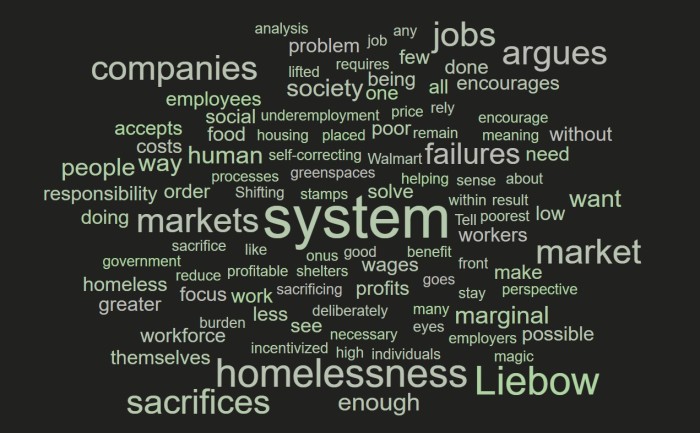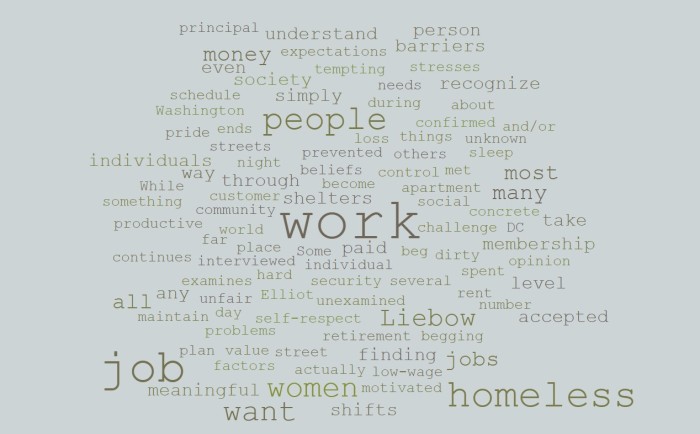“There is some evidence,” writes Christopher Jencks in The Homeless, “that lowering the minimum wage does create more low-wage jobs. But that is not the same as creating more stable jobs in which workers come to care about the enterprise that employs them or take some pride in doing useful work.”
I like this quote and think about this idea all the time. Many of the low-wage jobs available to people at the lowest socioeconomic status in the United States are awful. They don’t pay well, they don’t have future growth opportunities, and society seemingly accepts that people working in such awful jobs will face repeated abuse from customers. We know these jobs suck and wouldn’t want our kids to have to deal with them. If we worked in a crummy food service job right out of high school or while going through college, then we know how bad they are, and hopefully have some sympathy for people working in such jobs. Nevertheless, many of us find it easier to criticize people for not working such awful jobs than criticize business owners for allowing such awful jobs to exist.
Our country often has debates about what the minimum wage should be, and while Jencks’ book is now outdated in terms of the research he cites, it is still the case that economists are often mixed on the debate as to whether raising the minimum wage increases job loss and whether lowering the minimum wage would promote jobs. Either way, the debate doesn’t get at the reality that many of the minimum wage jobs that exist are barely jobs worth having. When you factor in travel time, disrespect that comes with such jobs, and the sometimes overly demanding requirements of jobs, it is not hard to see why people don’t want to work them or don’t last in them once they do take them. Focusing just on a jobs count is inadequate compared to thinking about job quality and actual engagement and productivity. Moving forward we need to think beyond the numbers of people working and start exploring the role they are filling, whether the job is flat out awful, and whether there are more productive and rewarding things we could have people do. When viewing the jobs world in this light, future developments in automation are not as scary. Who cares if Walmart checkers lose their terrible jobs if we can find more rewarding jobs for them that suck less? This should be the mission of society and our economy, not simply hiring the maximum number of people for minimum wage work.









